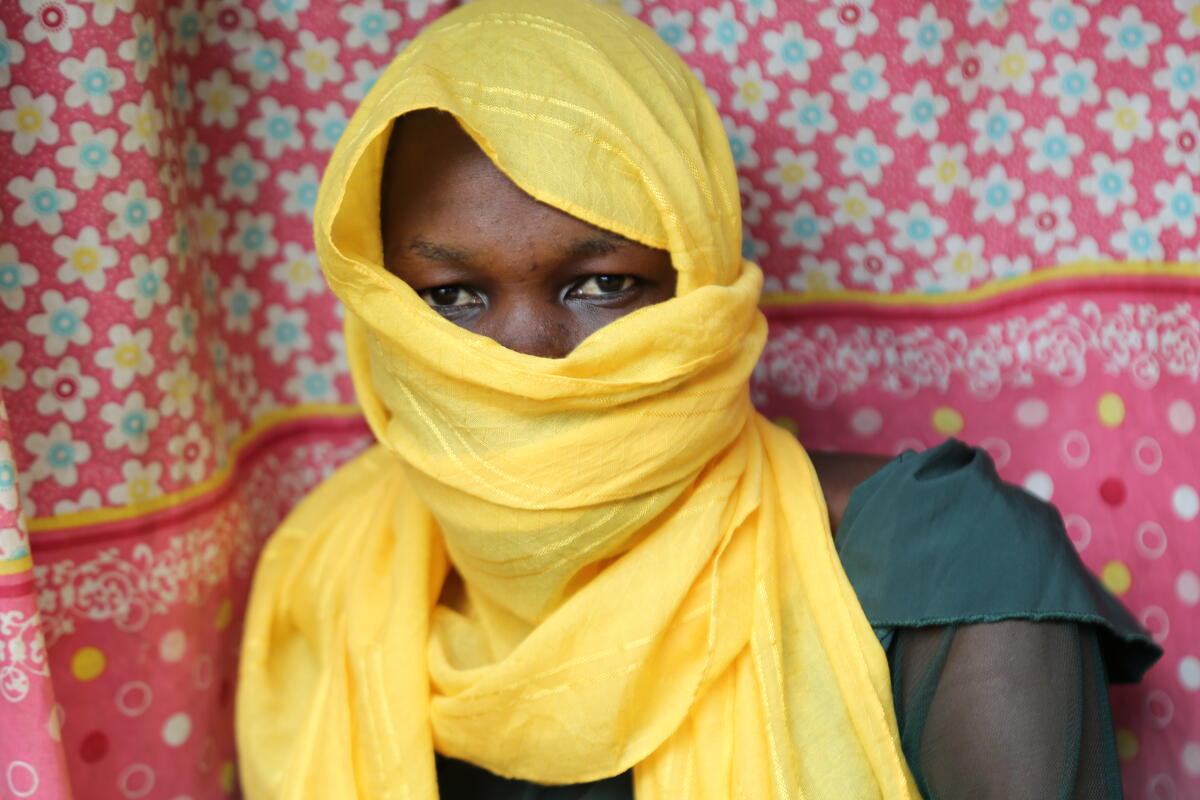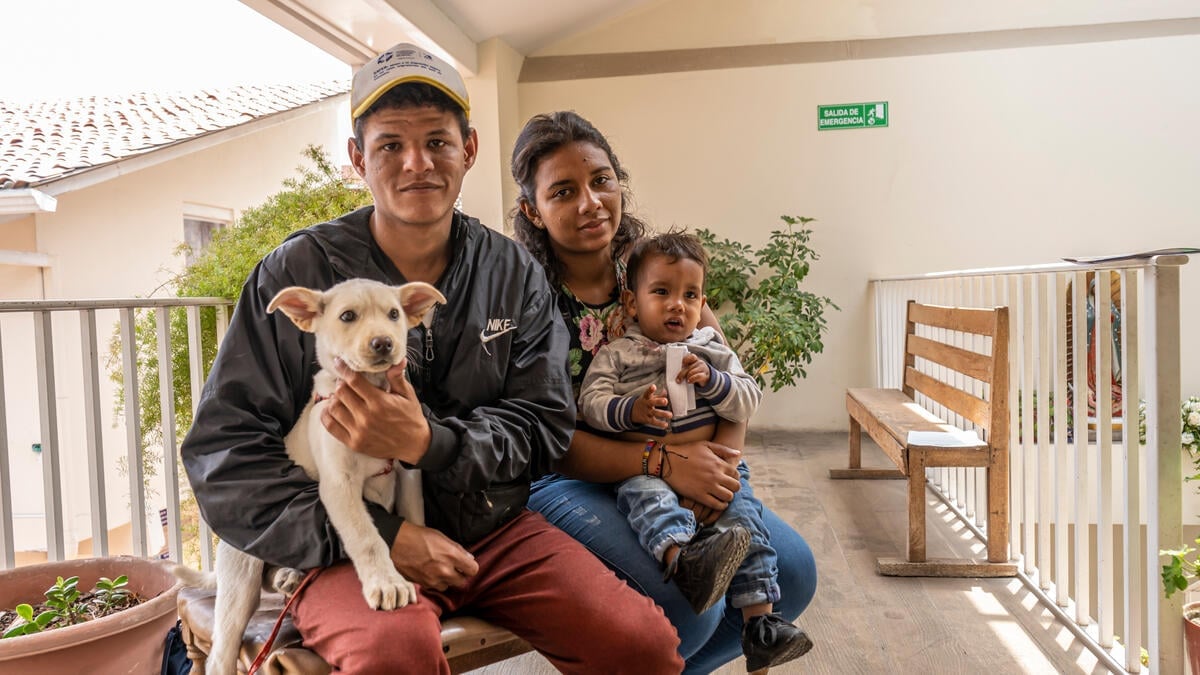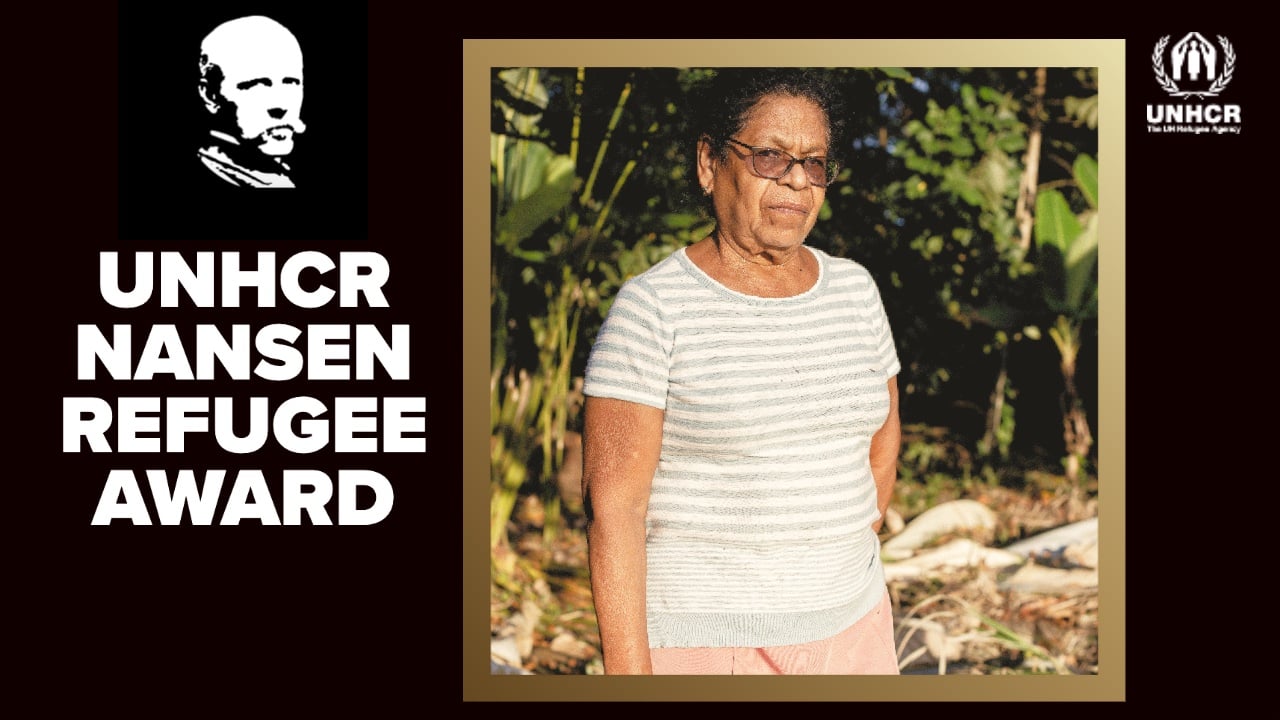International Women's Day: Peanut butter, pottery and sewing help empower refugee women
International Women's Day: Peanut butter, pottery and sewing help empower refugee women

KAKUMA REFUGEE CAMP, Kenya, March 6 (UNHCR) - The 15 Sudanese woman are a study in concentration, bent over their busy sewing machines in a classroom at the Kakuma Refugee camp in north-west Kenya.
They are learning a skill that could one day be their passport to economic independence and security, just like hundreds of other Sudanese refugee women who have taken part in programmes organized by UNHCR to prepare them for life back in South Sudan.
Others in the camp are taking part in pottery classes, handicrafts manufacture, beauty salon training and tailoring. One enterprising group of 50 women, almost half of them from the local Turkana community, have begun marketing the peanut butter that they learned how to make on a UNHCR course at Kakuma.
"Although most people here are not used to eating peanut butter, we are marketing it and encouraging them to use it in soup, porridge and bread because it is very sweet," said Johan Akot, a widow who fled to Kenya to escape an attack on her home in South Sudan by the Lord's Resistance Army (LRA), a vicious Ugandan rebel group.
The peanut butter project has been a great success since it was launched last December by UNHCR and its partners as an income generation project to help vulnerable women. Pottery and handicrafts projects were also introduced for the female refugees last year.
The cooperative of refugee and local women involved have been selling the peanut butter to camp residents as well as staff from other UN aid agencies and non-governmental organizations. Akot said it had been such a success that her share of the profits was enough to purchase food and clothing.
Margaret Machek, a mother of four taking part in the sewing project, hopes that she can emulate the success of the peanut butter sisterhood. Machek originates from Chukudum in the South Sudan state of Eastern Equatoria and she lost an eye while fleeing to Kenya. "I was running away after our village was attacked and a stick penetrated my eye," she explained, while adding that her husband had been killed in the assault.
Machek's affliction means she has to concentrate much harder than others taking part in the course. But she is a determined woman and relishes the chance to learn a skill that will help her become independent when she returns home.
Four years after one of Africa's longest running civil wars ended in January 2005, more than 300,000 registered refugees from South Sudan have returned home, including some 145,000 with the direct help of the UN refugee agency.
But the peace remains fragile in South Sudan and people are returning to areas devastated by years of conflict and neglect. UNHCR is also involved in hundreds of reintegration projects aimed at rapidly developing areas of high return and making repatriation sustainable.
The skills-learning and income generation programmes in Kakuma, conducted with partners such as the Lutheran World Federation and the National Council of Churches in Kenya, are part of that process.
They help prepare women for a new life by giving them skills that can support them economically. And they don't just cater to the Sudanese refugees in the camp, but also Ugandans, Ethiopians and others from the region.
"Many women have become very dependent on the aid provided in the camp by humanitarian agencies," noted UNHCR Community Services Officer Menbere Dawt. "This is a problem we need to address and we hope that once these women have gained the skills needed to stand on their own two feet, they will be more confident about restarting their lives back in Sudan."
By Emmanuel Nyabera in Kakuma Refugee Camp, Kenya









